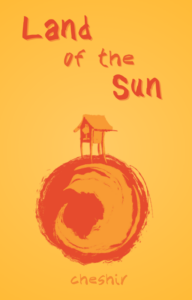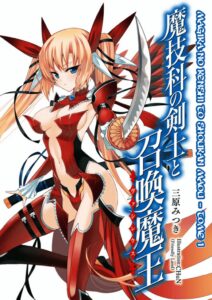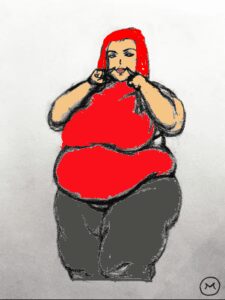Ringg was still bending over Meta’s hand when Vorongil came into the cabin. He started to speak, then noticed Ringg. “I might have known,” he growled, “if there was anything to find out, you’d find it.”
“Shall I go, rieko mori?”
“No, stay. You’ll find it out some way or other, you might as well get it right the first time. But first of all—are you all right, Meta?”
Her chin went up, defiantly. “Yes. And why have you lied to us all these years—all of you?”
Vorongil looked mildly startled. “It wasn’t exactly a lie. Nine out of ten Lhari captains believe it with all their heart—that humans die in warp-drive. I wasn’t sure myself until I heard the debates in Council City, last year.”
“But why?”
Vorongil sighed. His eyes rested disconcertingly on Bart. “I presume you know human history,” he said, “better than I do. The Lhari have never had a war, in all written history. Quite frankly, you terrified us. It was decided, on the highest summit levels, that we wouldn’t give humans too many chances to find out things we preferred to keep to ourselves. The first few ships to carry Mentorians had carried them without cold-sleep, but people forget easily. The truth is buried in the records of those early voyages.
“As the Mentorians grew more important to us, we began to regret the policy, but by that time the Mentorians themselves believed it so firmly that when we tried the experiment of carrying them through the shift into warp-drive, they died of fear—pure suggestion. I tried it with you, Meta, because I knew Bart’s presence would reassure you. The others were given an inert sedative they believed to be the cold-sleep drug. How are you feeling, Bart?”
“Fine—but wondering what’s going to happen.”
“You won’t be hurt,” Vorongil said, quickly. Then: “You don’t believe me, do you?”
“I don’t, sir. David Briscoe did what I did, and he’s dead. So are three other men.”
“Men do strange things from fear—men and Lhari. Your people, as I said before, have a strange history. It scares us. Can you guarantee that some, at least, of your people wouldn’t try to come and take the star-drive by force? We left a man on Lharillis who thought nothing of killing twenty-four of us. I suppose the captain of the Multiphase, knowing he had gravely violated Lhari laws, knowing that Briscoe’s report might touch off an intergalactic war between men and Lhari—well, I suppose he felt that half a dozen deaths were better than half a million. I’m not defending him. Just explaining, maybe, why he did what he did.”
Bart lowered his eyes. He had no answer to that.
“No, you won’t be killed. But that’s all I can guarantee. My personal feelings have nothing to do with it. You’ll have to go to Council Planet with us, and you’ll have to be psych-checked there. That is Lhari law—and by treaty with your Federation, it is human law, too. If you know anything dangerous to us, we have a legal right to eliminate those memories before you can be released.”
Meta smiled at him, encouragingly, but Bart shivered. That was almost worse than the thought of death.
And the fear grew more oppressive as the ship forged onward toward the home world of the Lhari. And it did not lessen when, after they touched down, he was taken from the ship under guard.
He had only a glimpse, through dark glasses, of the terrible brilliance of the Lhari sun dazzling on crystal towers, before he was hustled into a closed surface car. It whisked him away to a building he did not see from the outside; he was taken up by private elevator to a suite of rooms which might—for all he could tell—have been a suite in a luxury hotel or a lunatic asylum. The walls were translucent, the furniture oddly colored, and so carefully padded that even a homicidal or suicidal person could not have hurt himself or anyone else on it or with it.
Food reached him often enough so that he never got hungry, but not often enough to keep him from being bored between meals, or from brooding. Two enormous Lhari came in to look at him every hour or so, but either they were deaf and dumb, did not understand his dialect of Lhari, or were under orders not to speak to him. It was the most frustrating time of his entire voyage.
One day it ended. A Lhari and a Mentorian came for him and took him down elevators and up stairs, and into a quiet, neutral room where four Lhari were gathered. They sat him in a comfortable chair, and the Mentorian interpreter said gently, with apology:
“Bart Steele, I have been asked to say to you that you will not be physically harmed in any way. This will be much simpler, and will have much less injurious effect on your mind if you cooperate with us. At the same time, I have been asked to remind you that resistance is absolutely useless, and if you attempt it, you will only be treated with force rather than with courtesy.”
Bart sat facing them, shaking with humiliation. The thought of resistance flashed through his mind. Maybe he should make them fight for what they got! At least they’d see that all humans weren’t like the Mentorians, to sit quietly and let themselves be brainwashed without a word of protest.
He started to spring up, and the hands of his guards tightened, swift and strong, even before his muscles had fully tightened. Bart’s head dropped. Cold common sense doused over his brave thoughts. He was uncountable millions of light-years from his own people. He was absolutely alone. Bravery would mean nothing; submission would mean nothing. Would he be more of a man, somehow, if he let his mind be wrecked?
“All right,” he muttered, “I won’t fight.”
“You show your good sense,” the Mentorian said quietly. “Give me your left arm, please—or, if you are left-handed, your right. As you prefer.”
Deftly, almost painlessly, a needle slid into his arm. Giving in. A dizzying welter of thoughts spun suddenly in his mind. Briscoe. Raynor One and Raynor Three. The net between the stars. Ringg, Vorongil, Meta, his father….
Consciousness slid away.
Years later—he never knew whether it was memory or imagination—it seemed to him that he could reach into that patch of gray and dreamless time and fish out questions and answers whole, the faces of Lhari swelling up suddenly in his eyes and shrinking back into interstellar distance, the sting-smell of drugs, the sound of unexpected voices, odd reflex pains, cobwebs of patchy memories that fitted nowhere else into his life so that he supposed they must go here.
He only knew that there was a time he did not remember and then a time when he began to think there was such a thing as memory, and then a time when he floated without a body, and then another time when the path of every separate nerve in his body seemed to be outlined, a shimmering web in the gray murk. There was a mirror and a face. There were blotchy worms of light like the star-trails of peaking warp-drive through the viewport, colors shifting and receding, a green star, the red eye of Antares.
Then the peak-point faded, his mind began to decelerate and angle slowly down and down into the field of awareness, and he became fuzzily aware that he was lying full length on a sort of couch. He shook his head groggily. It hurt. He sat up. That hurt, too. A hand closed gently around his elbow and he felt the cold edge of a cup against his sore mouth.
“Take a sip of this.”
The liquid felt cool on his tongue, evaporating almost before he could swallow; the fumes seemed to mount inside the root of his nose, expanding tremendously inside his head and brain. Abruptly his head was clear, the last traces of gray fuzz gone.
“When you feel able,” the Mentorian said courteously, “the High Council will see you.”
Bart blinked. As if exploring a sore tooth with his tongue, his mind sought for memories, but they all seemed clear, marshaled in line. The details, clear and unblurred, of his voyage here. His humiliation and resentment against the Lhari. They could have changed my thinking, my attitudes. They could have made me admire or be loyal to the Lhari. They didn’t. I’m still me.
“I’m ready now.” He got up, reeled and had to lean on the Mentorian; his feet did not seem to touch the ground in quite the right way. After a minute he could walk steadily, and followed the Mentorian along a corridor. The Mentorian said into a small grille, “The Vegan Bartol, alias Bart Steele,” and after a moment a doorway opened.
Inside a room rose, high, domed, vaulted above his head, whitish opalescent, washed with green. For a moment, while his eyes adjusted to the light, he wondered how the Lhari saw it.
Beyond an expanse of black, glassy floor, he saw a low semicircular table, behind which sat eight Lhari. All wore pale robes with high collars that rose stiffly behind their domed heads; all were old, their faces lined with many wrinkles, and seven of the eight were as bald as the hull of the Swiftwing. Under their eyes he hesitated; then, unexpectedly, pride stiffened his back.
They should have done a better job of brainwashing, if they expected him to skulk in like a scared rabbit! He held his head high and moved across the floor step by steady step, trying not to limp or display that he felt tired or sore.
You’re human! Act proud of it!
No one moved until he stood before the semicircle of ancients. Then the youngest, the only one of the eight with some trace of feathery crest on his high gray head, said “Captain Vorongil, you identify this person?”
“I do,” Vorongil said, and Bart saw him seated before the high Council. To Bart, the Lhari captain seemed a familiar, almost a friendly face.
“Well, Bart Steele, alias Bartol son of Berihun,” said one old Lhari, “what have you to say for yourself?”
Bart stood silent, not moving. What could he say that would not reveal how desperately alone, how young and foolish and frightened he felt? All his brave resolutions seemed to drain away before their old, gnomish faces. Here he’d been thinking of himself as a brave spy, a gallant fighter in humanity’s cause and what not. Now he saw himself for what he was; a reckless boy, meddling in affairs too big for him. He lowered his eyes.
“We have read the transcript of your knowledge,” said the old Lhari. “There is little in it that we do not know. We are not, of course, concerned with human conspiracies unless they endanger Lhari lives. The Antares authorities will deal with the man Montano for an unauthorized landing on Lharillis, in violation of Federation treaty.”
He smiled, his gnome’s face breaking into a million tiny cracks like a piece of gray-glazed pottery. “Bartol, or whatever you call yourself, you are a brave young man. I suppose you are afraid we will block your memories, or your ability to speak of them?”
Bart nodded, gulping. Did the old Lhari read his mind?
“A year ago we might have done so. Captain Vorongil, you will be interested to know that we have discussed this in Council, and your recommendations have been taken. The secret that humans can endure star-drive has outlived its usefulness. For good or ill, it is secret no longer. We cannot possibly eliminate all the old records, or the enterprising people who hunt them out.
“The captain who had David Briscoe killed, under the mistaken notion that this would excuse his own negligence in letting Briscoe stow away on his ship, is undergoing psychotherapy and may eventually recover.
“As for the rest—Bart Steele, you know nothing that is a danger to us. You do not know the coordinates of our world, or even in which galaxy it is located. You do not know where we secure the catalyst your people seek. In fact, you know nothing that is not soon to become common knowledge. In view of that, we have decided not to interfere with your memories.”
“Talk as much as you like,” added another of the ancients, “and may your memories of this voyage help in understanding between the Lhari and other human races. Good fortune to you.” And he was smiling.
“There is another side to this,” said a third, more sternly and gravely. “You have broken a treaty between Lhari and man. We have dealt with you as the laws required; now your own people must do so. You must return with the Swiftwing to the planet where the violation originated—” he consulted a memorandum—”Procyon Alpha. There you and the man Raynor Three will face charges of unlawful conspiracy to board a Lhari ship, in violation of Intergalactic Trade treaties. Captain Vorongil, will you be responsible for him?”
So I’ve lost, Bart thought drearily. I didn’t even learn anything important enough for them to suppress. There was a strange wounded pride in this; after all his trouble, he was being treated like a little boy who has used a great deal of enterprise and intelligence to rob a cookie cupboard, and for his pains is sent home with the stolen cookie in his hand.
Vorongil touched his arm. “Come, Bartol,” he said gently, “I’m taking you back to the Swiftwing. I don’t have to treat you like a prisoner, do I?”
Numbly, Bart gave what the old Lhari asked, his word of honor not to attempt escape (Escape? Where to?) or to attempt to enter the drive chamber of the Swiftwing while they were still among the Lhari worlds.
As they left the council hall, Bart, in a gesture of despair, covered his face with his hands. As he brought them down, he found himself staring at them, transfixed.
The fingers looked longer and thinner than he remembered them, but they were his own hands again. The nails seemed faintly thick and ridged, and there was still a faint grayish tinge through the pale flesh color, but they were human hands. Unmistakably. He felt of his nose and ears, with fumbling fingers; raised his hand and touched the very short, crisp hair growing on his newly shaven skull.
“You fool,” said Vorongil to the Mentorian, in disgust, “why didn’t you tell him what the medics had done for him? Easy, Bartol!” The old Lhari’s arm tightened around his shoulder. “I thought they’d told you. Somebody come here and give the youngster a hand.”
Later, in the small cabin (it had been Rugel’s) which was to be his prison during the return voyage of the Swiftwing, he had a chance to study his familiar-strange face. He had thought that only a short time—an hour or so—had elapsed between the time he was drugged and the time they took him before the Council. Later, from what he learned about the dispatch schedules of the Swiftwing, he realized that he had been kept under sedation for nearly three weeks, while his face and hands healed.
As Raynor Three had warned, the change was not altogether reversible. Studying his face in the mirror, he could still see a hint of something thin, strange, alien in the set of his features; the nose and chin somewhat too pointed, elfin, to be human. His hands would always be too long, too narrow, too supple. For the rest, he looked grim, older. He could never go back to what he had been before he became a Lhari; it had left its mark on him forever.
Before the Swiftwing lifted, outbound, Vorongil came to his cabin. “You’ve seen very little of our world,” he said diffidently. “I have permission for you to visit the city before we leave Council Spaceport.”
“You think you can trust me?” Bart asked bitterly.
Vorongil said gravely, without humor, “The question does not arise. You do not know the coordinates of this world, and have no way of finding them. Within those limitations, you are an honored guest here, and if it would give you any pleasure, you are welcome to see as much of Council Planet as time permits.”
It seemed, through Vorongil’s kindness, that the old Lhari sensed his bitter defeat. Nothing was to be gained by sulking in his cabin, a prisoner. He had an opportunity which no human, except the Mentorians, had ever had; which perhaps no human would ever have again. He might as well take advantage of it.
Ringg and Meta both seemed startled at his new appearance, but Meta instantly held out her hands, clasping his quickly and warmly. “Bart! I wondered what your real face looked like. But I think I’d have known you anyhow.”
Ringg surveyed him wonderingly, shaking his head. “Say something,” he implored, “so I’ll know you’re Bartol.”
Bart held out his arm, less gray by the day as the drug wore out of his system. The thin line of the scar was still on it. He raised his forefinger lightly to the fine line on Ringg’s cheek. “I couldn’t return that now. So let’s not get into any more fights.”
Ringg laughed and gave him a rough, affectionate shove. “You’re Bartol, all right!”
Even his sense of defeat vanished in wonder as they came out into the great spaceport. He saw, now, that the Lhari spaceports in human worlds were built to create, for the spacemen so far from their native worlds, some feeling of home. But everything here was so vast as to stagger the imagination. There were miles and miles of the great ships, lying strewn like pebbles on this monster beachhead into space, bearing the strangeness of a million far-flung stars. He gaped like a child.
Above them, the burning brilliance of a star gave strange glow and color to the crystal pylons. What color was the star? He turned to Meta, irritated at his inability to be sure.
“Meta, what color is this sun? I’ve been all around the spectrum, and it’s not red, blue, green, orange, violet—” He broke off, realizing what he had said and what he had seen. “An eighth color,” he finished, anticlimatically.
“You and your talk of colors,” Ringg grumbled, “I wish I knew what you Mentorians see! It’s like trying to imagine seeing a smell or hearing light!”
Meta laughed. “As far as I know, no one’s named it. Sometimes we Mentorians call it catalyst color. I think only Mentorians can see it as separate color.”
“So what?” Ringg said impatiently, “What are we going to do, chatter about light waves or see the city?”
Bart acquiesced, trying to sound eager, but a wild excitement was gusting up in him. He dutifully pretended fascination with the towers, the many-leveled roads, the giant dams and pylons, but his thoughts were racing.
The eighth color! There can’t be too many suns of this color, or they’d have named it and known it! And telescopes can find it.
Could success be salvaged, then, at the very edge of failure? Maybe he need not go empty-handed, empty-eyed, from the Lhari worlds! They had dismissed him, scornfully, stolen cookie in hand—but maybe it would be a bigger cookie than they dreamed!
The exhilaration lasted through the tour of the port, through the heavy surge of acceleration which brought them up, out and way from Council Planet. Bart, confined in Rugel’s cabin, hardly felt like a prisoner, his mind busy with schemes.
I’ll study star-maps, and spectroscope reports….
It lasted almost two days of shiptime, and they were readying for Acceleration Two, before he came, figuratively, down to earth. To pick one star out of trillions—and not even in his own galaxy? It would take a lifetime and he didn’t even know which of the four or five spiral nebulae in the skies of the human worlds was the Lhari Galaxy. A lifetime? A hundred lifetimes wouldn’t do it!
He might have known. If there had been one chance in the odd billion of his making any such discovery, the Lhari would never have given Vorongil permission for the intruder to visit the planet at all. He would have been returned to the Swiftwing as he had been taken from it, by closed car, and imprisoned, maybe even drugged, until he was safely back in the human worlds again.
He was under parole not to enter the drive chamber (and sure he would be stopped if he attempted it anyhow), but when Acceleration One was completed, he went to the viewport in the Recreation Lounge, and nobody threw him out. He stood long, looking at the unfamiliar galaxy of the Lhari stars; the unknown, forever unknowable constellations with their strange shapes. Stars green, gold, topaz, burning blue, sullen red, and the great strangely colored receding sun of the Lhari people, known to them by the melodious name of the Ke Lhiro—which meant, simply, The Sun: it was their first home.
Where had he seen that color? In that stolen glimpse of the Lhari ship landing, long ago? Of all the colors of space, this one he would never know.
He turned away from the unsolvable riddle of the strange constellations; and went to his cabin, to dream of the green star Meristem where he had first plotted known coordinates for a previously unknown world, and to wander in baffling nightmares where he fed jagged, star-colored pieces of hail into the ship’s computer and watched them come out as tiny paperdoll spaceships with the letterhead of Eight Colors printed neatly across their sides.
After the warp-drive shift, Vorongil came to his cabin, this time crisp and businesslike.
“We’re back in your galaxy,” he said, “among the stars you know. We have no passenger space on the Swiftwing; we had to ship out without replacing Rugel, which means we’re short two men. I’ve no authority to ask this of you, but—would you like your old job back for the rest of the voyage?”
Bart glanced at his human hands.
Vorongil shrugged. “We’ve carried Mentorians as full-ranking Astrogators. There don’t happen to be any on the Swiftwing. But there’s no law about it.”
Bart looked the old Lhari in the eye. “I won’t accept Mentorian terms, Vorongil.”
“I wouldn’t ask it. You worked your way outward on this run, and the High Council didn’t see fit to erase those memories or inhibit them. Why should I? Do you want it or not?”
Did he want it? Until this moment Bart had not identified the worst of his pain and defeat—to travel as a passenger, a supercargo, when he had once been part of the Swiftwing. Literally he ached to be back with it again. “I do, rieko mori.”
“Very well,” Vorongil rapped, “see that you turn out next watch!” He spun round and walked out. His tone was no longer gently indulgent, but sharp and distant. Bart, at first surprised, suddenly understood.
Not now a prisoner, a passenger, a guest on the Swiftwing. He was part of the crew again—and Vorongil was his captain.
The Lhari crew were oddly constrained at first. But Ringg was the same as always, and before long they were almost on the old terms. With every watch, it seemed, he was building a bridge between man and Lhari. They accepted him.
But for what? Something might come, in the far future, of his acceptance, but he wouldn’t get the benefit of it. This would be his only voyage; after this he’d be chained again, crawling from planet to planet of a single sun. And as warp-shift followed warp-shift, the Swiftwing retracing the path of her outward cruise star by star, Bart said farewell to them.
One day, at last, he stood at the viewport, watching Procyon Alpha nearing. A year ago, frightened, terribly alone, still unsteady on his new Lhari muscles and terrified by the monsters that were his shipmates, he had watched these planets spinning away. Poor old Rugel, poor old Baldy!
Behind him, Meta came into the lounge.
“Bart—”
He turned to face her. “It won’t be much longer, Meta. Tomorrow I’ll find out what the Federation is going to do to me. Conspiracy unlawfully to board—and all the rest of it. Even if I don’t go to a prison planet, I’ll spend the rest of my life chained down to Vega.”
“It doesn’t have to be that way.”
“What other choice is there?” he demanded.
“You’re half Mentorian,” she said, raising her eager face. “Oh, Bart, you love it so, you know you can’t bear to give it up. Stay with us—please stay!”
Before answering, he looked out the viewport a last time. The clouds of cosmic dust swirled and foamed around the familiar jewels of his own sky. Blue, beloved Vega, burning in the heart of the Lyre—home—when would he go home? He had no home now. Yet his father had left him Vega Interplanet, as well as Eight Colors and a quest to the stars.
He searched for the topaz of Sol, where he had learned astrogation; Procyon, where he had become a Lhari; the ruby of Aldebaran (hail and farewell, David Briscoe!); the bloodstone of Antares, where he had learned fear and the shape of integrity. The colors, the unknowable colors of space. And others. Nameless stars where he and his Lhari shipmates had worked and played. And stars he had never seen and would never see, all the endless worlds beyond worlds and stars beyond stars….
He took a last, longing look at the colors of space, then turned his back on them, deliberately giving them up. He could not pay the price the Mentorians paid.
“No, Meta,” he said huskily. “The Mentorian way is one way, but—I’ve had a taste of being one of the masters of space. It’s more than most men ever have, maybe it’s more than I deserve. But I can’t settle for anything less. Not even if it means losing you.”
He shut his eyes and stood, head bowed. When he looked up again, he was alone with the stars beyond the viewport, and the lounge was empty.







The Indolence of the Filipino
Completed